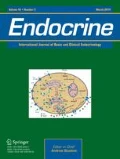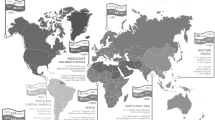Abstract
Chronic inflammation is supposed to be an important mediator of cardiometabolic dysfunctions seen in type 2 diabetes. In this mini-review, we collected evidence (PubMed) from randomized controlled trials (through March 2016) evaluating the effect of anti-inflammatory drugs on indices of glycemic control and/or cardiovascular events in people with type 2 diabetes. Within the last 25 years, many anti-inflammatory drugs have been tested in type 2 diabetes, including hydroxychloroquine, anti-tumor necrosis factor therapies (etanercept and infliximab), salsalate, interleukin-1 antagonists (anakinra, canakinumab, gevokizumab, LY2189102), and CC-R2 antagonists. Despite being promising, the observed effects on HbA1c or glucose control remain rather modest in most clinical trials, especially with the new drugs. There are many trials underway with anti-inflammatory agents to see whether patients with cardiovascular diseases and/or type 2 diabetes may have clinical benefit from marked reductions in circulating inflammatory markers. Until now, a large trial with losmapimod (a p38 inhibitor) among patients with acute myocardial infarction, including one/third of diabetic patients, showed no reduction in the risk of major ischemic cardiovascular events. Further evidence is warranted in support of the concept that targeting inflammation pathways may ameliorate glycemic control and also reduce cardiovascular complications in type 2 diabetes.
Similar content being viewed by others
References
G.S. Hotamisligil, N.S. Shargill, B.M. Spiegelman, Adipose expression of tumor necrosis factor-alpha: direct role in obesity-linked insulin resistance. Science 259, 87–91 (1993)
G.S. Hotamisligil, A. Budavari, D. Murray, B.M. Spiegelman, Reduced tyrosine kinase activity of the insulin receptor in obesity-diabetes: central role of tumor necrosis factor-alpha. J. Clin. Investig. 94, 1543–1549 (1994)
P. Libby, Inflammation in atherosclerosis. Nature 420, 868–874 (2002)
K. Esposito, D. Giugliano, The metabolic syndrome and inflammation: association or causation? Nutr. Metab. Cardiovasc. Dis. 14, 228–232 (2004)
C. Belizna, Hydroxychloroquine as an anti-thrombotic in antiphospholipid syndrome. Autoimmun. Rev. 14, 358–362 (2015)
Y.C Kaplan, J. Ozsarfati, C. Nickel, G. Koren, Reproductive outcomes following hydroxychloroquine use for autoimmune diseases: a systematic review and meta-analysis. Br. J. Clin. Pharmacol. (2015 Dec 23). doi: 10.1111/bcp.12872. [Epub ahead of print]
A. Quatraro, G. Consoli, M. Magno et al., Hydroxychloroquine in decompensated, treatment-refractory noninsulin-dependent diabetes mellitus. A new job for an old drug? Ann. Intern. Med. 112, 678–681 (1990)
H.C. Gerstein, K.E. Thorpe, D.W. Taylor, R.B. Haynes, The effectiveness of hydroxychloroquine in patients with type 2 diabetes mellitus who are refractory to sulfonylureas—a randomized trial. Diabetes Res. Clin. Pract. 55, 209–219 (2002)
A. Pareek, N. Chandurkar, N. Thomas et al., Efficacy and safety of hydroxychloroquine in the treatment of type 2 diabetes mellitus: a double blind, randomized comparison with pioglitazone. Curr. Med. Res. Opin. 30, 1257–1266 (2014)
M.C. Wasko, H.B. Hubert, V.B. Lingala, J.R. Elliott, M.E. Luggen, J.F. Fries, M. Ward, Hydroxychloroquine and risk of diabetes in patients with rheumatoid arthritis. JAMA 298, 187–193 (2007)
T.S. Sharma, M.C. Wasko, X. Tang, D. Vedamurthy, X. Yan, J. Cote, A. Bili, Hydroxychloroquine use is associated with decreased incident cardiovascular events in rheumatoid arthritis patients. J. Am. Heart. Assoc. 4, 5 (2016)
M.A. Gonzalez-Gay, C. Gonzalez-Juanatey, T.R. Vazquez-Rodriguez et al., Insulin resistance in rheumatoid arthritis: the impact of the anti-TNF-alpha therapy. Ann. N. Y. Acad. Sci. 1193, 153–159 (2010)
J. Channual, J.J. Wu, F.J. Dann, Effects of tumor necrosis factor-alpha blockade on metabolic syndrome components in psoriasis and psoriatic arthritis and additional lessons learned from rheumatoid arthritis. Dermatol. Ther. 22, 61–73 (2009)
E. Parmentier-Decrucq, A. Duhamel, O. Ernst et al., Effects of infliximab therapy on abdominal fat and metabolic profile in patients with Crohn’s disease. Inflamm. Bowel Dis. 15, 1476–1484 (2009)
F. Ofei, S. Hurel, J. Newkirk, M. Sopwith, R. Taylor, Effects of an engineered human anti-TNF-alpha antibody (CDP571) on insulin sensitivity and glycemic control in patients with NIDDM. Diabetes 45, 881–885 (1996)
H. Dominguez, H. Storgaard, C. Rask-Madsen et al., Metabolic and vascular effects of tumor necrosis factor-alpha blockade with etanercept in obese patients with type 2 diabetes. J. Vasc. Res. 42, 517–525 (2005)
N. Esser, N. Paquot, A.J. Scheen, Anti-inflammatory agents to treat or prevent type 2 diabetes, metabolic syndrome and cardiovascular disease. Expert Opin. Investig. Drugs 24, 283–307 (2015)
Q. Javed, I. Murtaza, Therapeutic potential of tumour necrosis factor-alpha antagonists in patients with chronic heart failure. Heart Lung Circ. 22, 323–327 (2013)
J. Zhang, F. Xie, H. Yun, et al, Comparative effects of biologics on cardiovascular risk among older patients with rheumatoid arthritis. Ann. Rheum. Dis. (2016 Jan 20). doi: 10.1136/annrheumdis-2015-207870. [Epub ahead of print]
S.E. Shoelson, J. Lee, A.B. Goldfine, Inflammation and insulin resistance. J. Clin. Investig. 116, 1793–1801 (2006)
M.J. Yin, Y. Yamamoto, R.B. Gaynor, The anti-inflammatory agents aspirin and salicylate inhibit the activity of I(kappa)B kinase-beta. Nature 396, 77–80 (1998)
T.D. Gilmore, Introduction to NF-kappaB: players, pathways, perspectives. Oncogene 25, 6680–6684 (2006)
A.B. Goldfine, V. Fonseca, K.A. Jablonski, L. Pyle, M.A. Staten, S.E. Shoelson, TINSAL-T2D (TargetingInflammation Using Salsalate in Type 2 Diabetes) Study Team. The effects of salsalate on glycemic control in patients with type 2 diabetes: a randomized trial. Ann. Intern. Med. 152, 346–357 (2010)
A.B. Goldfine, V. Fonseca, K.A. Jablonski, Y.D. Chen, L. Tipton, M.A. Staten, S.E. Shoelson, Targeting inflammation using salsalate in type 2 diabetes study team. Salicylate (salsalate) in patients with type 2 diabetes: a randomized trial. Ann. Intern. Med. 159, 1–12 (2013)
A.B. Goldfine, J.S. Buck, C. Desouza et al., Targeting inflammation using salsalate in patients with type 2 diabetes: effects on flow-mediated dilation (TINSAL-FMD). Diabetes Care 36, 4132–4139 (2013)
K. Maedler, P. Sergeev, F. Ris et al., Glucose-induced beta cell production of IL-1beta contributes to glucotoxicity in human pancreatic islets. J. Clin. Investig. 110, 851–860 (2002)
C.M. Larsen, M. Faulenbach, A. Vaag, A. Vølund, J.A. Ehses, B. Seifert, T. Mandrup-Poulsen, M.Y. Donath, Interleukin-1-receptor antagonist in type 2 diabetes mellitus. N. Engl. J. Med. 356, 1517–1526 (2007)
C. Herder, E. Dalmas, M. Böni-Schnetzler, M.Y. Donath, The IL-1 pathway in type 2 diabetes and cardiovascular complications. Trends Endocrinol. Metab. 26, 551–563 (2015)
H.J. Lachmann, I. Kone-Paut, J.B. Kuemmerle-Deschner, K.S. Leslie, E. Hachulla, P. Quartier, X. Gitton, A. Widmer, N. Patel, P.N. Hawkins, Use of canakinumab in the cryopyrin-associated periodic syndrome. N. Engl. J. Med. 360, 2416–2425 (2009)
P.M. Ridker, C.P. Howard, V. Walter, on behalf of the CANTOS Pilot Investigative Group et al., Effects of interleukin-1β inhibition with canakinumab on hemoglobin A1c, lipids, C-reactive protein, interleukin-6, and fibrinogen. A phase IIb randomized, placebo-controlled trial. Circulation 126, 2739–2748 (2012)
C. Cavelti-Weder, A. Babians-Brunner, C. Keller, M.A. Stahel, M. Kurz-Levin, H. Zayed, A.M. Solinger, T. Mandrup-Poulsen, C.A. Dinarello, M.Y. Donath, Effects of gevokizumab on glycemia and inflammatory markers in type 2 diabetes. Diabetes Care 35, 1654–1662 (2012)
J. Sloan-Lancaster, E. Abu-Raddad, J. Polzer, J.W. Miller, J.C. Scherer, A. De Gaetano, J.K. Berg, W.H. Landschulz, Double-blind, randomized study evaluating the glycemic and anti-inflammatory effects of subcutaneous LY2189102, a neutralizing IL-1β antibody, in patients with type 2 diabetes. Diabetes Care 36, 2239–2246 (2013)
N.A. Di Prospero, E. Artis, P. Andrade-Gordon, D.L. Johnson, N. Vaccaro, L. Xi, P. Rothenberg, CCR2 antagonism in patients with type 2 diabetes mellitus: a randomized, placebo-controlled study. Diabetes Obes. Metab. 16, 1055–1064 (2014)
S. Kaptoge, E. Di Angelantonio, G. Lowe, M.B. Pepys, S.G. Thompson, R. Collins, J. Danesh, C-reactive protein concentration and risk of coronary heart disease, stroke, and mortality: an individual participant meta-analysis. Lancet 375, 132–140 (2010)
P.M. Ridker, T. Thuren, A. Zalewski, P. Libby, Interleukin-1β inhibition and the prevention of recurrent cardiovascular events: rationale and design of the Canakinumab Anti-inflammatory Thrombosis Outcomes Study (CANTOS). Am. Heart J. 162, 597–605 (2011)
P.M. Ridker, Testing the inflammatory hypothesis of atherothrombosis: scientific rationale for the cardiovascular inflammation reduction trial (CIRT). J. Thromb. Haemost. 7(Suppl 1), 332–339 (2009)
P.M. Ridker, T.F. Lüscher, Anti-inflammatory therapies for cardiovascular disease. Eur. Heart J. 35, 1782–1791 (2014)
M.L. O’Donoghue, R. Glaser, M.A. Cavender, LATITUDE-TIMI 60 Investigators et al., Effect of losmapimod on cardiovascular outcomes in patients hospitalized with acute myocardial infarction: a randomized clinical trial. JAMA 315, 1591–1599 (2016)
L.K. Newby, M.S. Marber, C. Melloni et al., SOLSTICE investigators. Losmapimod, a novel p38 mitogen-activated protein kinase inhibitor, in non-ST-segment elevation myocardial infarction: a randomised phase 2 trial. Lancet 384, 1187–1195 (2014)
M.Y. Donath, Multiple benefits of targeting inflammation in the treatment of type 2 diabetes. Diabetologia 59, 679–682 (2016)
Author information
Authors and Affiliations
Corresponding author
Ethics declarations
Conflict of Interest
D. G. and K. E. received speaker fees from Lilly, SANOFI, and NOVARTIS.
Rights and permissions
About this article
Cite this article
Maiorino, M.I., Bellastella, G., Giugliano, D. et al. Cooling down inflammation in type 2 diabetes: how strong is the evidence for cardiometabolic benefit?. Endocrine 55, 360–365 (2017). https://doi.org/10.1007/s12020-016-0993-7
Received:
Accepted:
Published:
Issue Date:
DOI: https://doi.org/10.1007/s12020-016-0993-7




